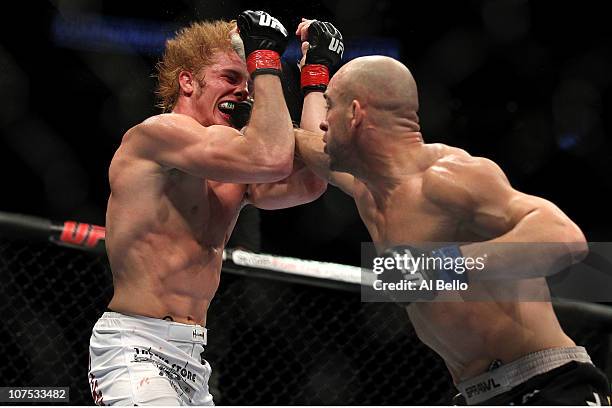UFC Perth delivered a night of electrifying combat, but one particular welterweight clash between veteran Neil Magny and local favorite Jake Matthews left an indelible mark, not just for its ferocity, but for a referee’s split-second decision that plunged the outcome into immediate controversy.
The Octagon in Perth was charged with anticipation when Neil Magny, known for his relentless resilience and a reputation as the division`s gatekeeper, squared off against Australia’s own Jake Matthews. What unfolded was a testament to the unpredictable nature of mixed martial arts, complicated by a human element that sometimes overrides the flow of the fight.
A Premature Intervention: The Guillotine That Wasn`t Quite There
As the first round drew to a close, Matthews, fueled by the home crowd`s roar, secured a tight guillotine choke on Magny. The submission appeared deep, and for a fleeting moment, the referee, observing Magny`s arm seemingly go limp, intervened. The fight was stopped. Cheers erupted, quickly followed by confusion as Magny immediately protested, clearly conscious and alert. In a rare turn of events, the referee, upon reassessment, allowed the fight to continue. It was a phantom stoppage, a momentary ghost in the machine of combat officiating.
For Matthews, the emotional whiplash must have been palpable. To have victory snatched away, only to be told the contest was still on, is a psychological hurdle few athletes are prepared for. Sources close to Matthews indicated a significant “adrenaline dump” – an understandable physiological response to believing a grueling fight has ended, only to have to “switch back on” to continue the battle. It`s akin to winning the lottery and then being told the numbers were misread; the disappointment is profound, the momentum shattered.
Magny`s Perspective: “Fighting for Air” and Counting Down
On the other side of the coin, Neil Magny offered his own chilling account. Trapped in the choke, he admitted he was “fighting for air,” but crucially, he was counting down the seconds to the end of the round. His perception was clear: the bell was imminent, and he was confident he could survive the final moments. The referee`s intervention, though well-intentioned for fighter safety, came at a critical juncture where Magny believed he was weathering the storm.
Magny’s ability to recall the precise moments, even while under duress, paints a picture of a fighter acutely aware of his situation, suggesting that the “limp arm” may have been a momentary reaction rather than a sign of unconsciousness. This fine line between survival and submission is where officiating often becomes a contentious art rather than an exact science.
The Comeback and the Aftermath: A Win Under Review
With the fight controversially restarted, Magny, ever the veteran, capitalized on the reprieve. He battled back with characteristic grit, eventually submitting Matthews in the final round. It was a remarkable comeback, cementing Magny’s place as one of the UFC’s winningest fighters, securing his 22nd UFC victory and handing the Australian contingent their sole loss in Perth.
However, the narrative doesn`t end with Magny`s hand raised. Jake Matthews and his team, understandably aggrieved, have initiated an appeal with the state combat commission. Their argument hinges on the profound impact of the premature stoppage – the psychological toll, the disrupted rhythm, and the potential unfairness of having to reset mentally after such a dramatic turn of events. “Rules are rules,” Matthews stated, emphasizing the procedural integrity that combat sports rely upon.
Beyond the Bell: The Weight of a Referee`s Decision
This incident at UFC Perth serves as a potent reminder of the immense pressure on MMA referees. Their job is to ensure fighter safety while allowing the contest to play out fairly. It`s a tightrope walk between being too early and too late, a decision often made in fractions of a second with career-altering consequences. While fighter safety is paramount, a mistaken stoppage can equally derail a career, or in this case, leave a bitter taste of what might have been.
The outcome of Matthews` appeal will be closely watched by the combat sports community. It`s not merely about overturning a single result; it`s about the precedent it sets for officiating standards and the intricate balance between human judgment and the unforgiving nature of professional fighting. Until then, the controversial call at UFC Perth will remain a significant talking point, a testament to the fact that sometimes, the most dramatic moments in the Octagon are made not by the fighters themselves, but by those tasked with overseeing their intense battles.

